Want to listen instead? Check out our latest podcast below!
Superstitions are thought to be a human adaptation that allows us to feel power in situations that are otherwise outside of our control.
By this definition, it would make sense that one of the last few places where superstitions remain common is in fishing, where many of the factors determining our success (weather, water levels, insect hatches, etc.) fall well outside the range of our control.
So in honour of the 13th episode of our new podcast, Outdoor Journal Radio, we wanted to take a look at some of the strangest fishing superstitions, past and present, that have taken hold in the world of fishing and boating.
1) No Bananas on the Boat

Can you really talk about fishing superstitions without this one at the top of your list?
As you heard during the podcast, Ang and Pete had plenty of experience with this one, even crediting broken rods to a distant banana encounter. Though this might sound crazy to those outside the fishing world, we think you’d be hard-pressed to find any angler who would think nothing of packing one of these in their lunch box on tournament day or in their day bag on a long-awaited trip to the backcountry.
So with so many anglers treating this strange rule as religion, you would think its origins would be a bit clearer. Unfortunately, that doesn’t seem to be the case.
Origins:
a) Spiders

After a bit of digging on the internet, we were able to find two likely culprits for why this strange superstition exists.
The first is a spider known as the Brazilian Wandering Spider. Also known as the Banana Spider, these highly venomous spiders earn their moniker by their tendency to live and lay eggs among bushels of bananas.
With these deadly spiders being common passengers of this fruit, it is understandable that this “superstition” would originate during the 1700s when boats full of bananas were frequently making their way across the Atlantic. Although bites from these spiders surely were not common, they were clearly enough to scare some passengers and perhaps spark a superstition that still exists to this day.
b) Quick to Spoil
Another theory as to why bananas are viewed as bad luck on boats is their tendency to spoil quickly. More than just an inconvenience, bananas release a substance known as ethylene gas as they ripen, a hormone found in many fruits but in slightly higher quantities in bananas.
When humans are exposed to high amounts of ethylene, it can cause headaches, dizziness, fatigue, lightheadedness, confusion, and unconsciousness. Furthermore, the gas is extremely flammable and reactive, perhaps leading to the reports from the 1700s that many missing and shipwrecked boats would leave nothing behind but their bananas.
Although the amount of ethylene gas produced by bananas would be unlikely to cause a boat to disappear on its own, the gas has been responsible for at least one incident back in 1949 and could help explain why this superstition is still so prominent.
2) No Whistling on the Boat
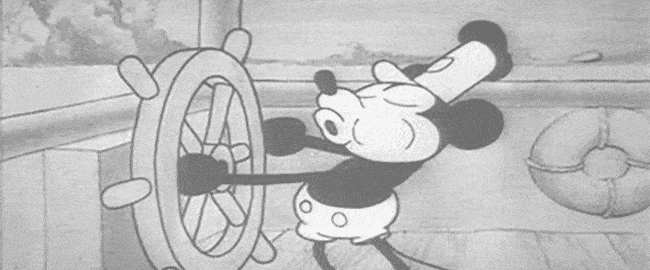
Pete Bowman has been known to break this one a time or two and it has yet to slow him down. However, historically, his whistled rendition of Crazy Train might have got him thrown overboard.
Origins:
The primary reason for this superstition is that it was once believed that whistling would bring in bad weather by challenging the wind and causing it to bring in a storm. The superstition was further reinforced in 1789 when Captain William Bligh used a whistle as a signal for the infamous Mutiny on the Bounty that sent him and his crew off to live peacefully (at least for a little while) on the island of Tahiti.
So what does this have to do with fishing? Well, probably nothing. But if the winds pick up or your fishing buddies start a rebellion, don’t say we didn’t warn you.
3) Don’t Step Over Your Fishing Rods

Anyone who has ever fished on the deck of a bass boat will tell you that this is an impossible task, however, according to FishingBooker.com, stepping over fishing rods can be viewed as bad luck, resulting in no more fish being caught for the rest of the day.
Where this one originated is tough to pin down, although we suspect a broken, stepped-on rod was involved somewhere down the line.
4) Pour One Out

Unlike not stepping over rods, this is one we have seen quite often, especially in the ice fishing world. The theory goes that pouring the first sip of your drink into the hole or water will bring good luck for the day.
Origins:
The origins for this one are somewhat easy to trace, being a tradition in eastern Europe for quite some time. According to FishingBooker.com, Ukraine may be the tradition’s true birthplace, where a shot of vodka is always poured into the water before fishing to appease a spirit called Ivan Kupaila who guards the lakes and rivers.
Here in North America, it was also a common tradition amongst sailors to pour wine on the deck of the boat before a long voyage.
5) Never Re-Name a Boat
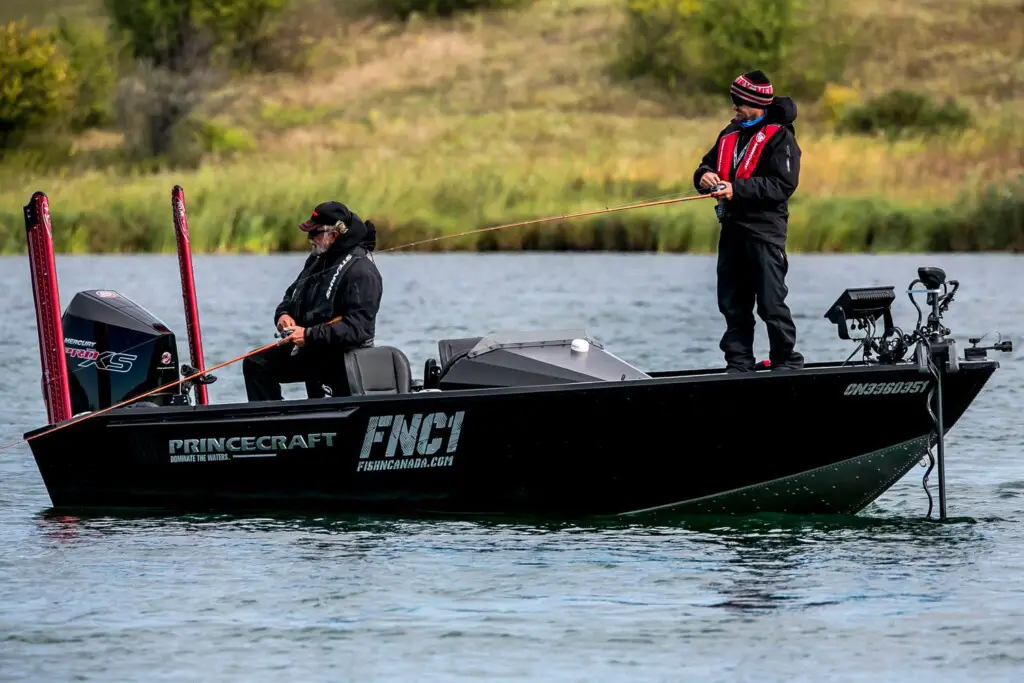
Angelo’s contemplation to rename FNC-1 was quickly put to rest when he found out it could spell disaster for the season ahead.
Origins:
According to legend, Poseidon, God of the Sea, keeps a log of every vessel’s name and is not kind to those who seek a change, bringing a destructive end to all those who try to slip one past him.
6) Don’t Flip a Fish

This next one comes to us from Vietnam and pertains more to eating fish than it does to catching them.
Although the origins are unknown, in Vietnamese culture, it is said to be bad luck to flip a fish when eating it, causing the boat that caught the fish to overturn on its next trip out. For this reason, many restaurants in Vietnam serve fish gutted and whole and it is customary to eat the fish all the way through rather than flipping it on its side.
7) Never Kill an Albatross
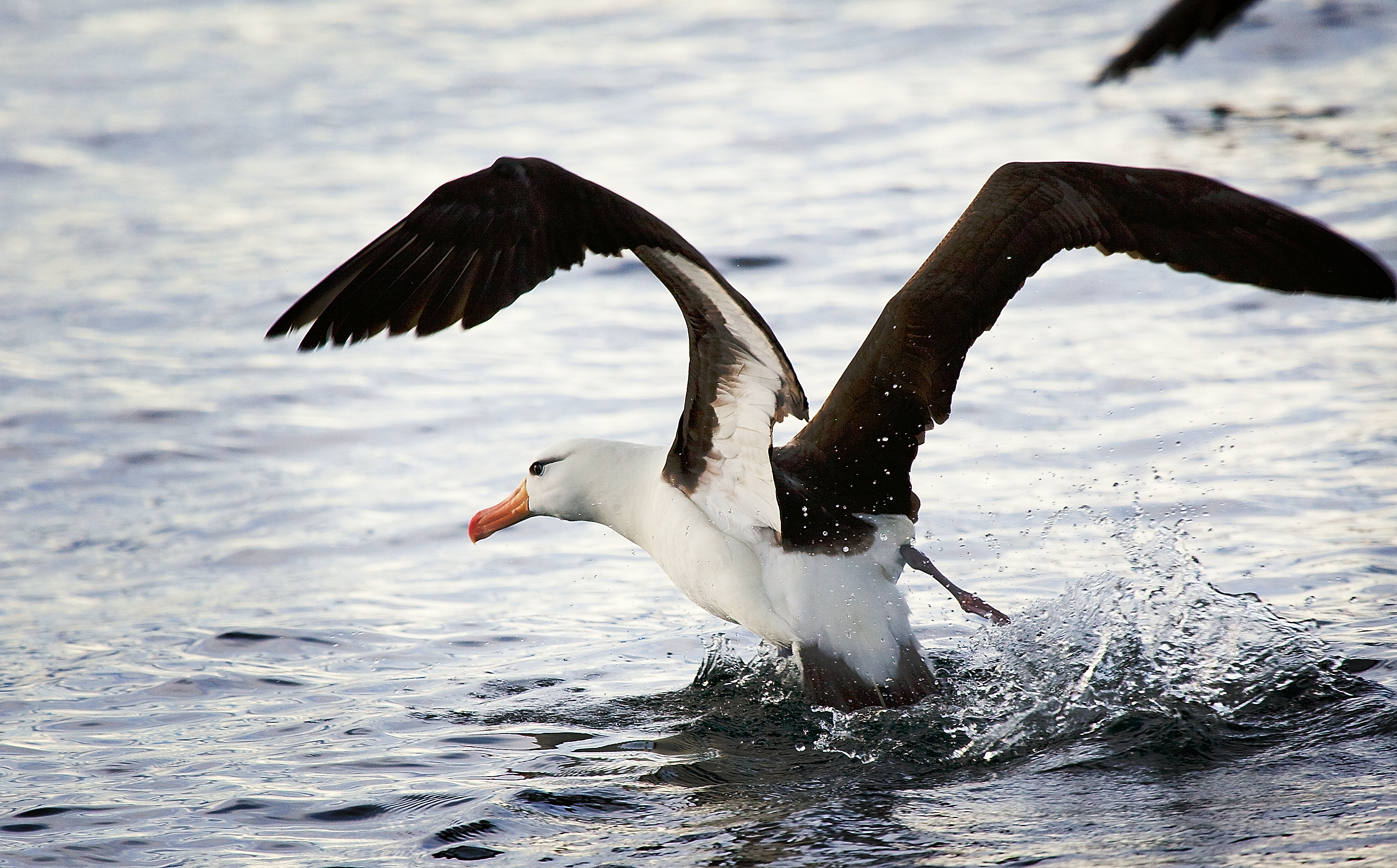
This next one is more for sailors, but we figured it was worth a mention.
Origins:
Killing Albatrosses has been considered bad luck for quite some time, as their ability to glide long distances led some sailors to believe that they harboured the souls of lost sailors. Killing one, therefore, would bring bad luck to the entire crew.
This was further solidified with Samuel Taylor Coleridge’s classic 1834 poem The Rime of the Ancient Mariner where the narrator brings bad luck to his entire crew and is then forced to wear the dead bird around his neck.
8) Don’t Say Rabbit

Aboard some boats in the UK, the R-word is strictly forbidden.
Origins:
When we heard this, we decided to ask a British buddy who loves fishing what was the deal. He replied, “never heard of that one mate!”
Despite our friend never having heard of it, this one is primarily a British superstition, with it being said that mentioning a rabbit onboard a boat can lead to disaster for the entire crew as the devil is known to disguise himself as the furry creature on occasion. According to DevonLive, many Westcountry seamen also won’t say church, pig, fox or cat.
“No pig?” says Ang and Pete. “What are we supposed to call Largemouth Bass?”
9) Toss a Coin in the Water
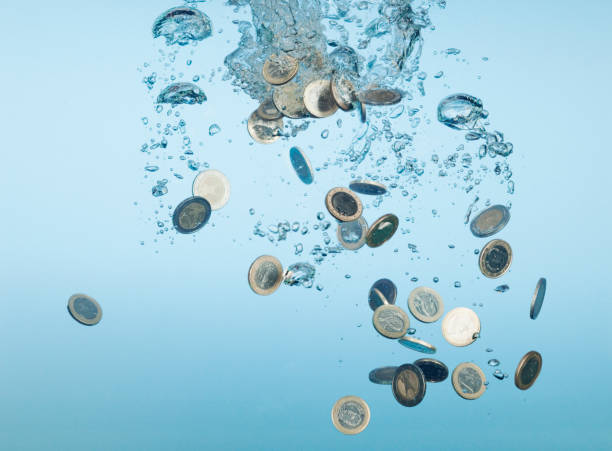
Definitely not one you are going to see from us anytime soon, but it is said to be good luck to throw a coin in the water before you fish.
Origins:
Similar to “pouring one out”, this superstition originated as a way to appease the gods and ensure a plentiful bounty and a safe trip home. Personally, we hope Ivan is satisfied enough with the donation of drink and leaves our pockets alone.
10) No Women on the Boat… Unless

Although women make up a large portion of those who enjoy the water today, there was a time it was strictly forbidden.
Origins:
According to Debra Rinca at HowStuffWorks, “women were historically forbidden from sailing on military vessels or merchant ships because captains believed their presence would anger the sea gods, who would cause rough waves and violent weather.” Ironically, sailors of the same time period also believed that bare-chested women onboard a boat would help to calm the seas.
11) Never Fish with a Man Named Jonah

Jonah has become a long-established nickname for sailors who are deemed bad luck and, according to some websites, it has made its way into the fishing world.
Origins:
The origins of this mariner term stem from the Bible where the prophet Jonah receives orders from God to sail to the city of Nineveh, but instead, he sails in the opposite direction out of fear. As punishment, God brought violent storms upon the ship until Jonah was eventually thrown overboard, eaten by a fish, and the seas became calm once more.
12) Don’t Catch a Fish on Your First Cast

While there have been few superstitions on this list that people still take seriously, this one is still alive and well in many fishing circles. The superstition goes that any angler who catches a fish on his or her first cast will proceed to catch nothing for the rest of the day.
Origins:
The origin of this one is tough to track but likely has roots in the idea that if something seems too good to be true, it probably is. However it originated, this one is especially prominent among hardcore bass anglers who will occasionally toss out a courtesy cast that is quickly burned back into the boat just to appease any fishing gods that could be watching over them.
13) Always Dip Your Net
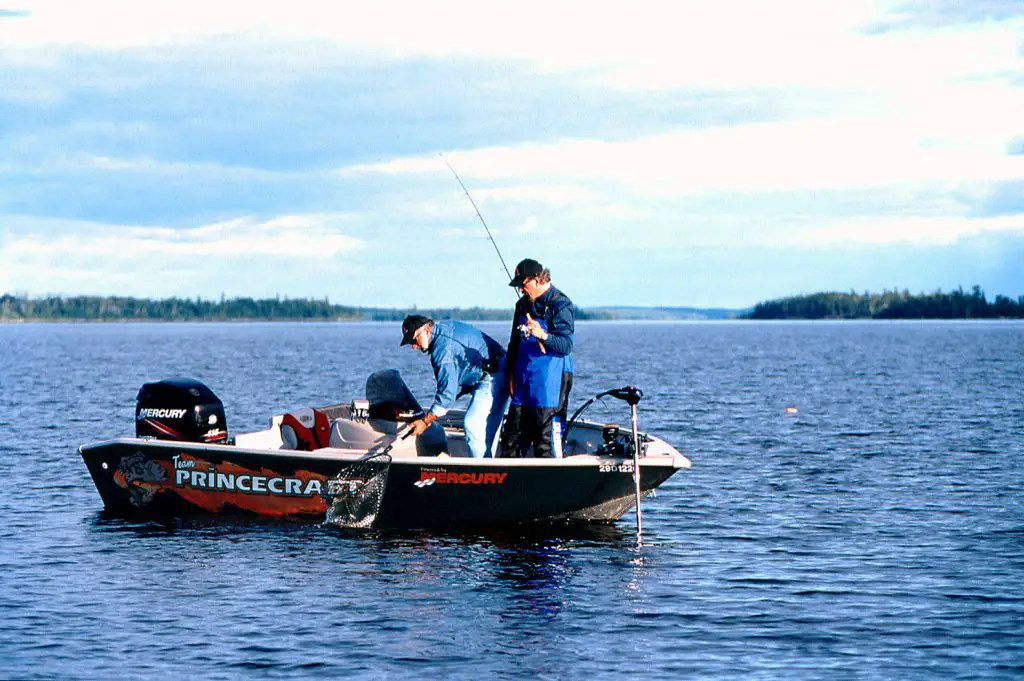
This last one on our list is one of the few we have personal experience with, most notably former Fish’n Canada co-host Reno Viola. As Ang recounts on the podcast, Reno would always dip the net in the water before throwing out the first cast.
Origins:
Reno, along with countless others who perform this ritual, claims that dipping the net stops it from removing the fish’s protective coating when it is brought in. This logic is also used in fly fishing when anglers wet their hands before holding fish, ensuring fish are returned as safely as possible back to the water.
Want to hear more stories like this? Check out the latest episode of our podcast on Apple, Spotify, or wherever else you get your podcasts!




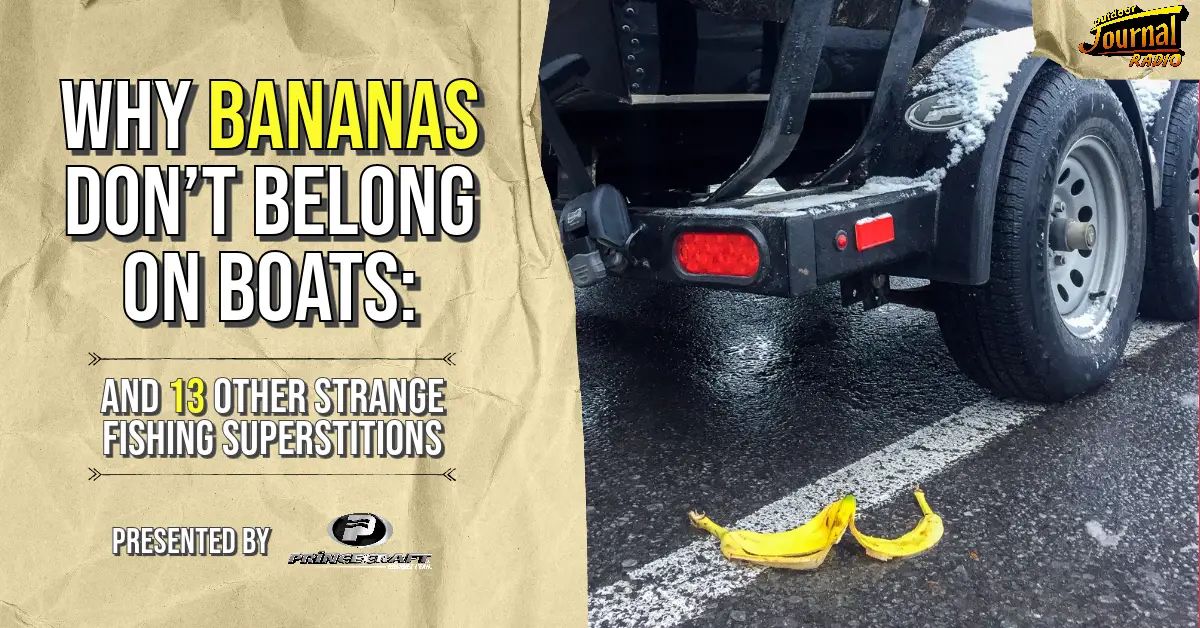

One Response
Coin in the water?